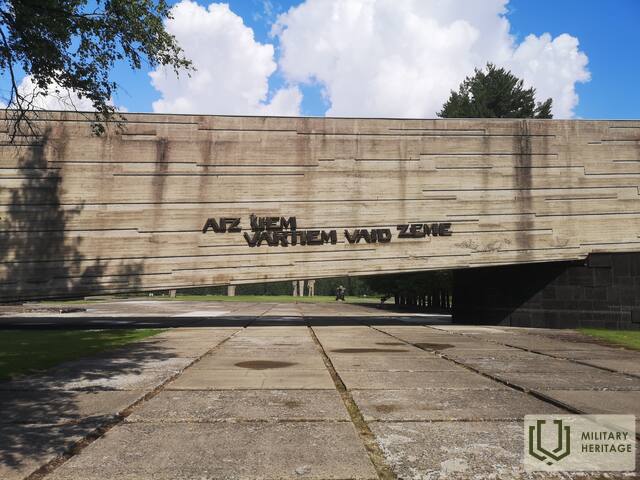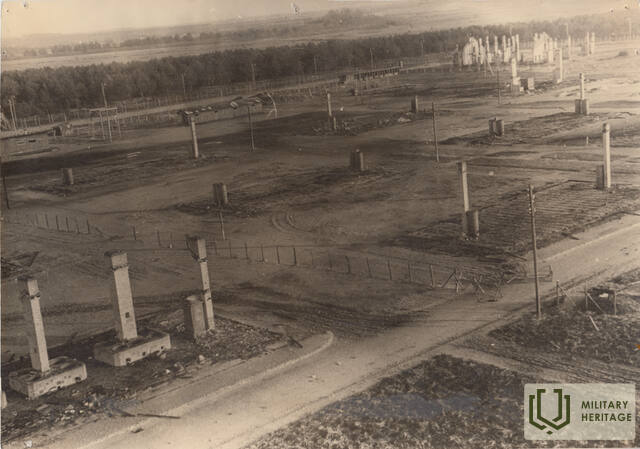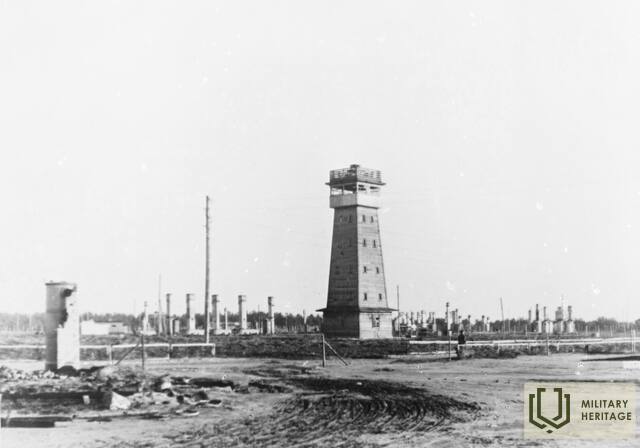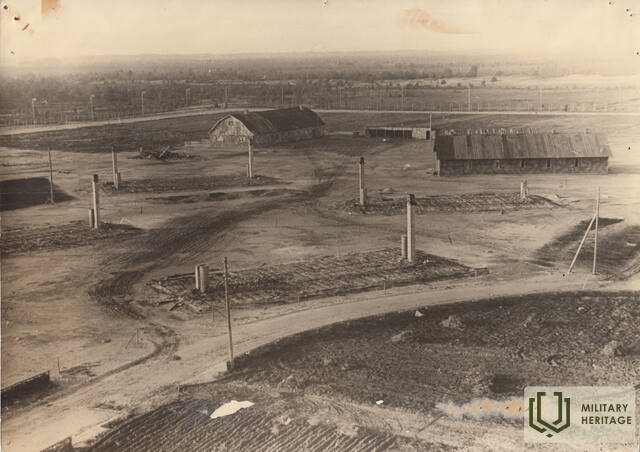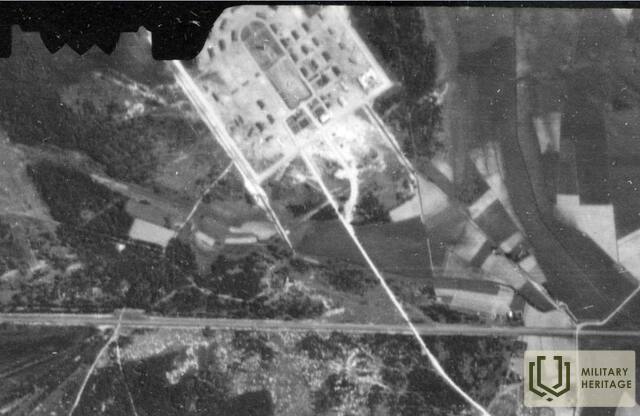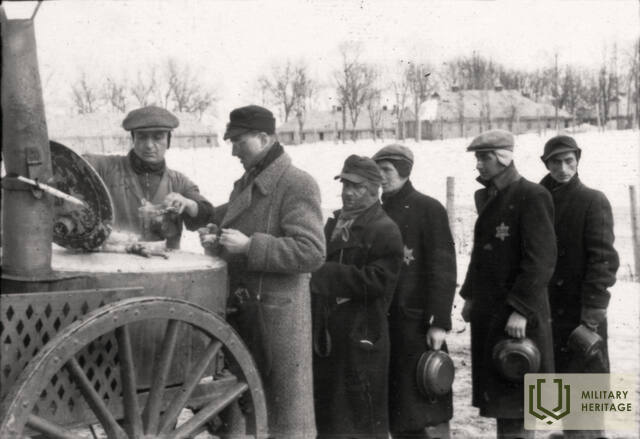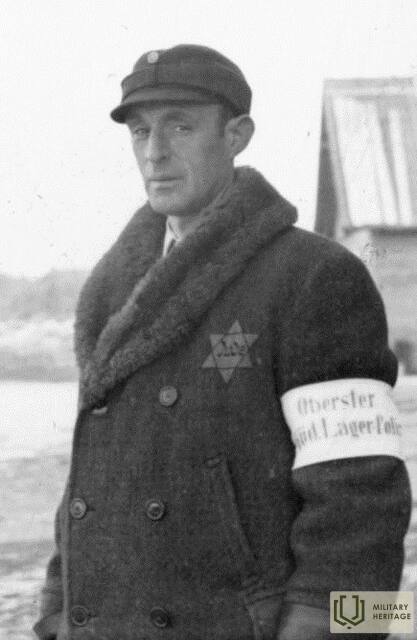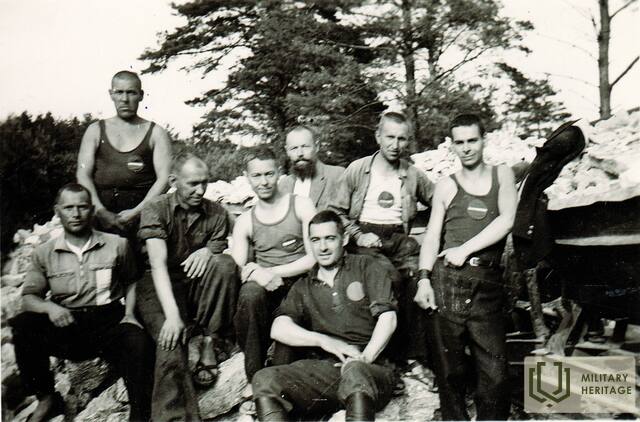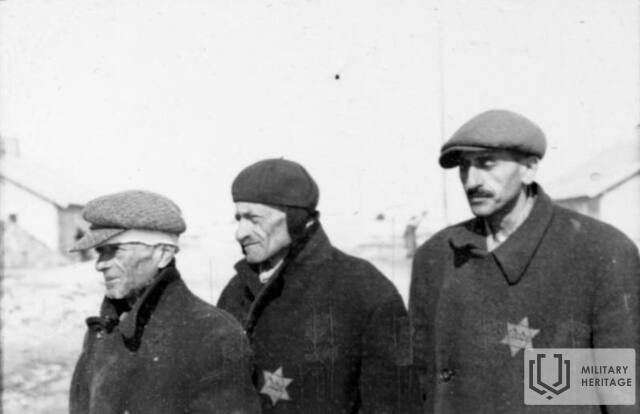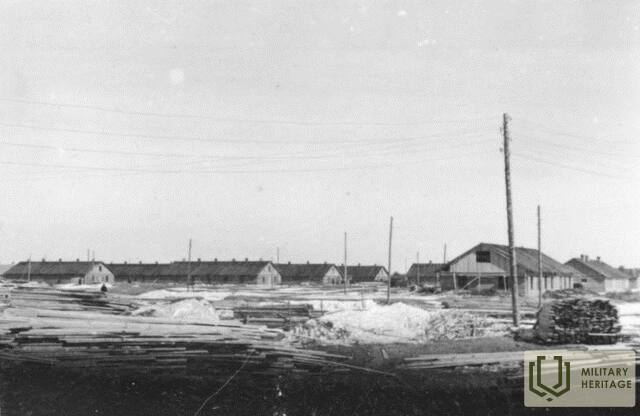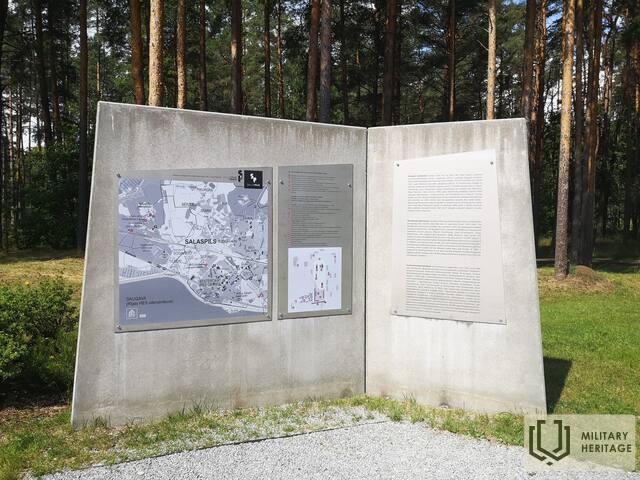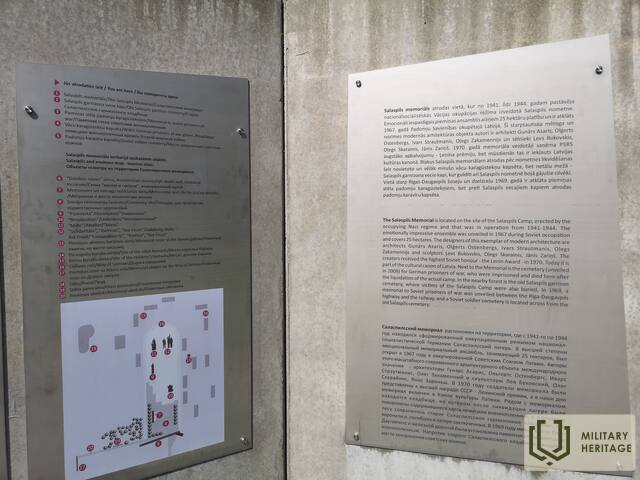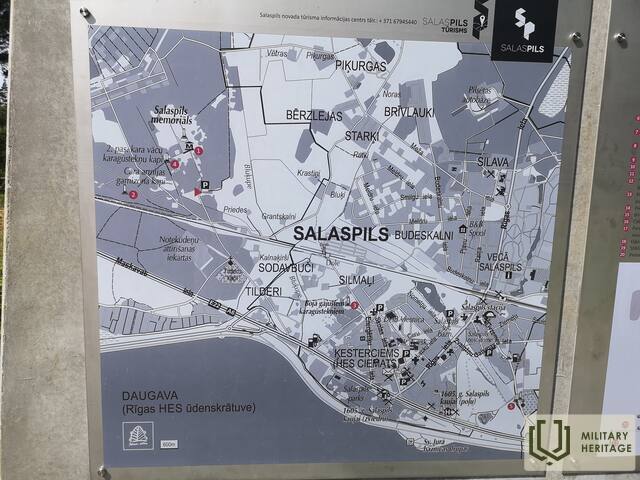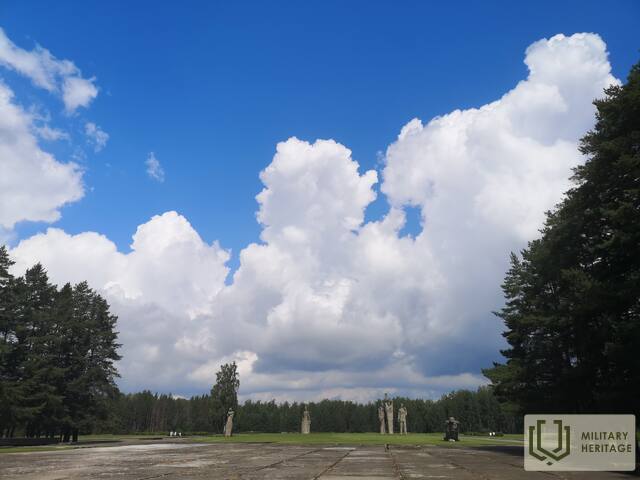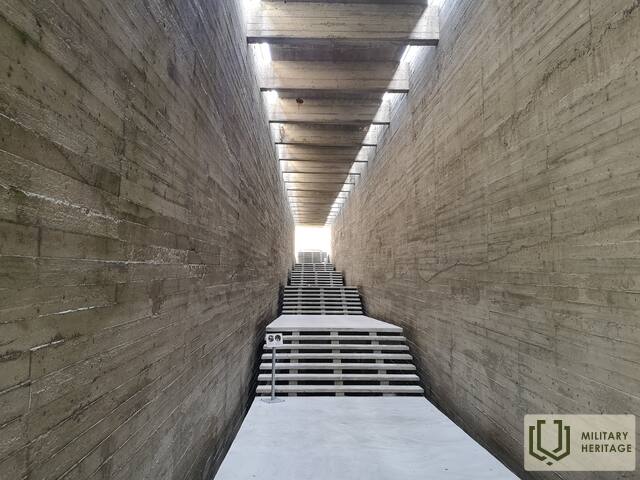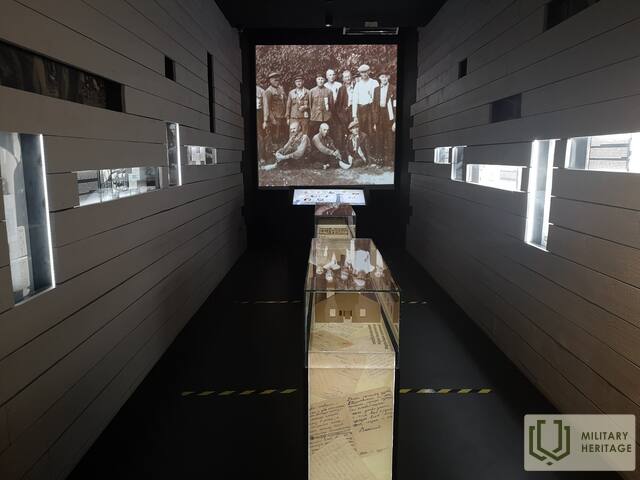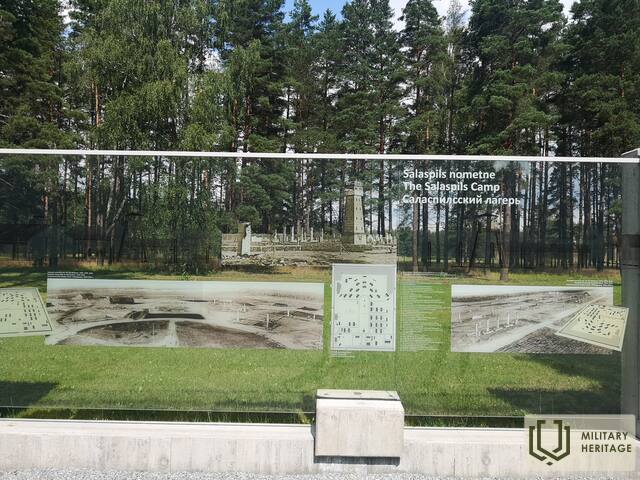Salaspilio memorialinis ansamblis Memorialinė vieta

Salaspilio memorialas ir istorinė ekspozicija yra Salaspilio savivaldybėje, 1,2 km nuo Rygos–Daugpilio greitkelio A6. Salaspilio memorialas buvo atidengtas 1967 m. toje vietoje, kur Antrojo pasaulinio karo metu buvo įsikūrusi Salaspilio stovykla. Tai vieta, kuri buvo naudojama sovietinei propagandai ir yra apipinta mitais bei pusinėmis tiesomis. Tai geras nacių nusikaltimų ir komunistinės ideologijos, vykdytos kiekvienos okupacijos metu, atvaizdas. Ši represinė stovykla buvo Vokietijos pataisos sistemos dalis. Ji turėjo panašumų su koncentracijos stovyklomis, bet tai nebuvo tas pats. Ji buvo sukurta tam, kad Rygos kalėjimuose nebūtų neproporcingai daug kalinių. Ši stovykla buvo „policijos kalėjimo tęsinys“. Čia buvo kalinami įvairūs žmonės – žydai, Raudonosios armijos karo belaisviai, pravaikštos dalyviai, politiniai kaliniai, nusikaltėliai, prostitutės, Latvijos pasipriešinimo judėjimo nariai, Baltijos šalių kareiviai Vokietijos armijoje ar policijoje ir kiti. Stovykloje galėjo kalėti iki 2200 kalinių. Pagrindinė mirties priežastis (apie 2000 m.) buvo nepakankama mityba, darbo sąlygos, fizinės bausmės ir ligos.
Panaudoti šaltiniai ir literatūra:
Kangers, K., Neiburgs, U.,, Vīksna, R. Už šių vartų žemė dejuoja. Salaspilio lageryje: 1941-1944 m. Ryga: Latvijos žiniasklaida, 2016 m.
Čunka, J. Istorikai: Salaspilio stovyklos negalima vadinti koncentracijos stovykla; duomenys apie aukas buvo perdėti. Lsm.lv. Prieinama: https://www.lsm.lv/raksts/dzive--stils/vesture/vesturnieki-salaspils-nometni-nevar-saukt-par-koncentrācijas-dati-par-upuriem-bija-parspileti.a166227/ [žiūrėta 2021-06-09.].
Susijusi laiko juosta
Susijusi istorija
Apie Salaspilio memorialą kaip sovietinio okupacinio režimo ideologijos simbolį.
Aprašyme vaizdžiai aprašomas memorialinės vietos politizavimo mastas ir jos vaidmuo Sovietų Sąjungos ideologijoje. Tekste minima, kad vienas iš pagrindinių tikslų – kova su „fašizmo atgimimu“. Tai rodo, kad ideologinė infrastruktūra ir toliau naudojama komunistų nusikaltimams slėpti ir kitaip mąstančiųjų nuomonei uždrausti. Memorialinės vietos, sovietų armijos kapinės ir muziejai, įvairūs kultūriniai renginiai palaikė „Latvijos išvadavimo“ ir „broliškos Sovietų Sąjungos“ mitą. Nacių nusikaltimų faktai buvo panaudoti kuriant iškreiptą Antrojo pasaulinio karo įvykių Latvijoje vaizdą.




